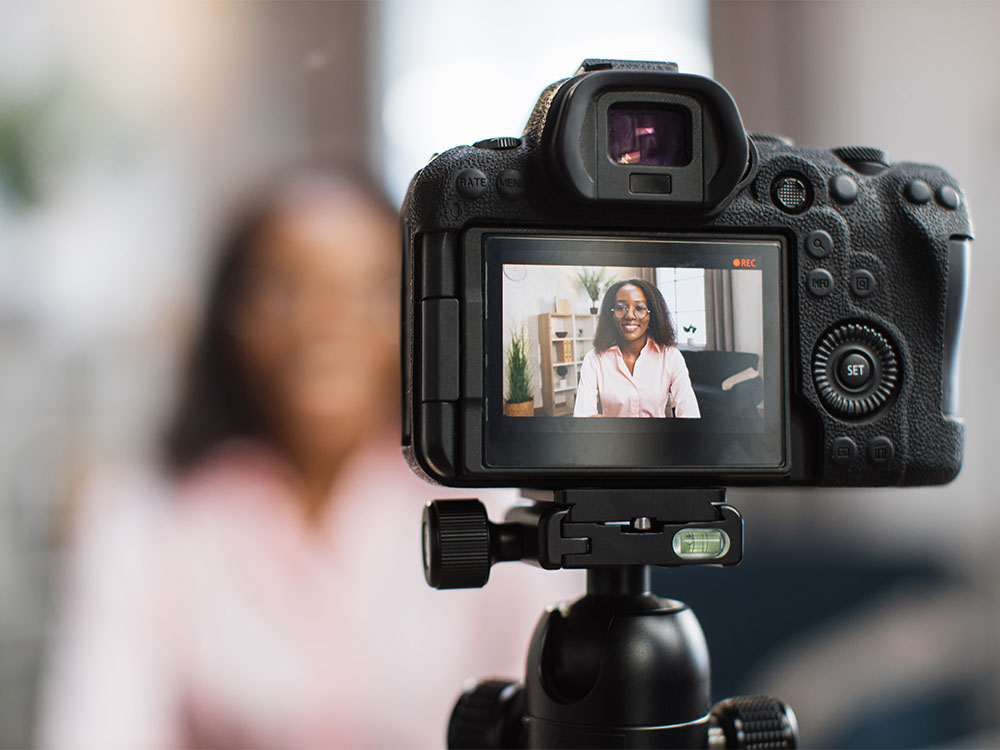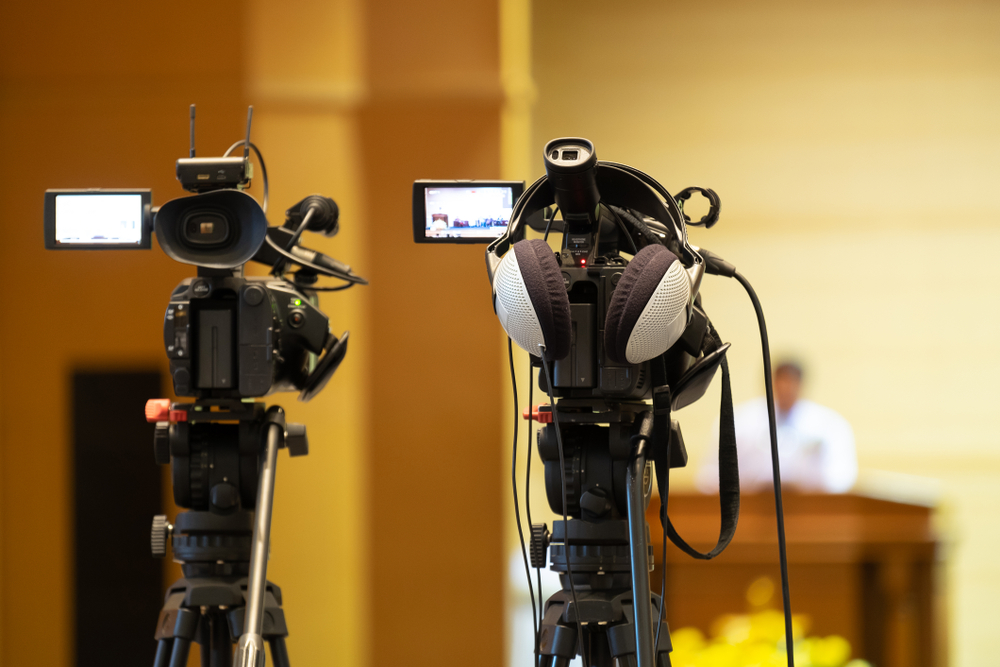What clients need to know before their legal video depositions session
The Importance of Lawful Video Clip Depositions in Modern Legal Providers: What You Must Know
Lawful video clip depositions have actually come to be essential in today's legal landscape. They provide a multidimensional view of witness testimonies that standard records merely can not match. By recording both non-verbal and spoken interaction, these depositions improve the overall understanding of a witness's trustworthiness. Nevertheless, the effectiveness of video clip depositions depends upon different aspects, consisting of compliance with legal criteria and ideal methods (legal video depositions). Exploring these components exposes their real relevance in modern lawful services
What Are Lawful Video Clip Depositions?
Legal video clip depositions act as a crucial tool in the litigation procedure. They involve taping witness testimonies in a video layout, capturing both non-verbal and spoken communication. This technique allows lawyers to document the temperament, expressions, and reactions of witnesses, giving a richer context for the testimony. Commonly conducted in a controlled setting, these depositions are led by lawyers who ask concerns while a court press reporter documents the dialogue. The resulting video clip can be crucial for trial prep work, as it makes it possible for lawyers to evaluate the credibility of witnesses and refine their techniques. In addition, lawful video clip depositions can be utilized in different lawful contexts, varying from civil conflicts to criminal instances. The visual and acoustic aspects of video clip depositions boost the presentation of evidence, making it a crucial part in the modern legal landscape. In general, they contribute substantially to the performance and performance of lawful process.

Benefits of Video Clip Depositions Over Standard Approaches
Video clip depositions use many benefits contrasted to standard techniques of taking witness statements. One considerable benefit is the capability to capture both audio and visual aspects, offering a much more extensive record of the witness's statements. This dual format enhances clarity and permits lawyers to reference certain nuances during test prep work. Furthermore, video depositions facilitate remote participation, making it less complicated for witnesses that may be unavailable for in-person looks as a result of geographical restrictions or health issues.Moreover, video clip depositions can speed up the total deposition procedure, minimizing the time and expenses connected with travel and logistics. They also boost availability, as tape-recorded depositions can be easily shared amongst legal groups and referenced at any moment. This convenience adds to much better case monitoring and preparation. On the whole, video depositions stand for a contemporary, efficient technique to gathering witness testaments, aligning with the advancing needs of the lawful profession.
The Duty of Body Language and Tone in Testimonies

In legal video clip depositions, body language and tone play important duties in conveying a witness's integrity and trustworthiness. Nonverbal cues can supply understandings into a witness's mood, affecting how their statement is viewed. Recognizing the impact of these elements is necessary for jurors and attorneys alike when assessing the dependability of a testament.
Nonverbal Interaction Insights
While spoken communication is typically highlighted in lawful testaments, nonverbal signs such as body movement and tone play an important function in sharing reliability and emotion. Observers of depositions may note that a witness's pose, motions, and faces can considerably affect assumptions of integrity. Regular eye call might signify self-confidence, while preventing look might suggest dishonesty or discomfort. Similarly, the intonation-- its rate, quantity, and pitch-- can present sensations of sincerity or uncertainty. Attorneys must be in harmony with these nonverbal signals, as they usually give essential context that enhances spoken words. Recognizing these nuances can improve the efficiency of depositions and influence the end result of legal proceedings.
Psychological Tone Effect
The emotional tone conveyed throughout legal testimonies substantially affects how a witness is regarded. Body language, singing inflections, and faces play important duties fit the narrative of a statement. A witness displaying self-confidence through constant eye call and a calm tone can impart a feeling of integrity and interaction. Alternatively, indications of anxiety, such as fidgeting or an unstable voice, might cause hesitation concerning their account. The subtleties of psychological expression can influence the interpretation of realities, making it important for lawyers to identify these cues. In video depositions, the auditory and aesthetic parts combine, highlighting the significance of emotional tone in communicating genuineness and truthfulness within the legal procedure.
Reliability and Reliability
A vital element in developing credibility and credibility throughout testaments depends on the witness's body language and tone of voice. Onlookers commonly count on non-verbal cues-- such as eye contact, pose, and motions-- to analyze a witness's genuineness. As an example, a witness who maintains eye get in touch with and shows open body movement might be viewed as even more reputable and sincere than one that stays clear of eye call or shows up shut off. In addition, intonation plays a crucial duty; a constant, tranquil tone can strengthen the integrity of the statement, while changes in pitch or volume might raise uncertainties. Inevitably, the mix of body language and vocal tone greatly affects just how a witness's declarations are gotten and translated in a legal context.
Ideal Practices for Performing Video Depositions
Conducting video clip depositions needs careful preparation and implementation to guarantee a clear and effective presentation of testament. It is this link important to pick a quiet, well-lit location to reduce click here for more info distractions and safe ideal video top quality. The devices should be checked beforehand, consisting of cams, microphones, and lighting, to prevent technological problems throughout the deposition.Next, celebrations entailed should assess the format and treatments beforehand, ensuring that everyone comprehends their duties. The deponent ought to be oriented on the process, including just how to respond clearly and concisely.Additionally, keeping a professional behavior throughout the session is important. This consists of avoiding speaking over one another and validating that all questions are guided appropriately. Lastly, it is important to tape the deposition in a format that enables for very easy playback and evaluation, maintaining the stability of the statement for future usage.
Lawful Factors To Consider and Compliance Issues
How do lawful considerations and compliance issues influence the effectiveness of video clip depositions? Attorneys need to browse an intricate landscape of policies, ensuring that video depositions follow administrative policies and standards. Compliance with laws concerning personal privacy, permission, and taping approaches is essential. Obtaining explicit consent from all parties involved is required to avoid legal repercussions.Additionally, the admissibility of video clip proof in court can hinge on compliance with step-by-step needs. Guaranteeing that the devices made use of fulfills technical criteria is also vital, as inadequate high quality can undermine the deposition's reliability.Moreover, lawyers need to understand any type of certain state regulations that regulate video depositions, as these can differ greatly. Failure to address these considerations can not only threaten the integrity of the deposition yet additionally affect the total instance technique, ultimately affecting the customer's legal outcomes.
How Video Clip Depositions Effect Court Assumption
While video wikipedia reference clip depositions can function as effective tools in legal proceedings, their impact on jury understanding is significant. The visual and auditory aspects of video recordings give jurors with a much more complete understanding of witness behavior, reliability, and psychological responses. This multimedia technique can boost the jurors' capability to examine the integrity of testimony contrasted to standard text-based transcripts.Moreover, video depositions permit jurors to observe body language, intonation, and face expressions, all of which can impact their analysis of the witness's statements. The existence of a witness on display can humanize them, promoting compassion and link, which may sway jurors' viewpoints. Alternatively, a witness that shows up unreliable or incredibly elusive on video clip might lead to negative understandings that influence a court's decision. Inevitably, the vibrant nature of video clip depositions plays a vital role in shaping exactly how jurors analyze proof and reach their judgments.
The Future of Video Depositions in Legal Practice
As developments in innovation continue to reshape the legal landscape, the future of video depositions is poised for considerable development. Advancements such as expert system, online truth, and improved video conferencing devices are anticipated to simplify the deposition procedure and boost access. Attorneys might use AI-driven analytics to examine witness reputation and case strength much more effectively.Moreover, the combination of virtual reality could allow courts to experience immersive simulations of depositions, giving much deeper context and understanding. Furthermore, the trend toward remote depositions is most likely to continue, providing higher flexibility for lawyers and customers alike.As remote job comes to be significantly normalized, video depositions will likely become typical technique, minimizing expenses and time constraints connected with standard techniques. Overall, these technical innovations guarantee to enhance the efficiency, effectiveness, and accessibility of video depositions in legal practice, eventually transforming just how lawyers plan for trial.
Regularly Asked Concerns
Just How Much Do Lawful Video Depositions Typically Expense?

Can Video Clip Depositions Be Used in Any Type Of Type of Situation?
Video clip depositions can be used in various types of instances, including civil, criminal, and family legislation. Their versatility enables lawyers to present witness statements properly, adapting to the particular needs of various legal scenarios.
What Equipment Is Needed for a Video Deposition?
To carry out a video clip deposition, important devices consists of a top quality video camera, microphone, lights, and a trustworthy recording device. In addition, a computer with modifying software program might be necessary for post-production and formatting the final video clip.
For how long Does a Typical Video Deposition Last?
A common video deposition lasts between two to four hours, depending upon the complexity of the situation and the variety of questions posed. Extended sessions may happen, yet breaks are usually integrated for individual convenience.

Are Video Clip Depositions Admissible in Court?
Video clip depositions are usually permissible in court, given they comply with lawful criteria and policies of proof. Their usage improves clearness and maintains witness testimony, aiding in the judicial process during hearings and tests. Lawful video depositions have become important in today's legal landscape. In addition, lawful video clip depositions can be utilized in different lawful contexts, varying from civil disagreements to criminal cases. Additionally, video clip depositions promote remote involvement, making it much easier for witnesses who might be inaccessible for in-person looks due to geographical constraints or health and wellness issues.Moreover, video depositions can accelerate the overall deposition process, reducing the time and prices connected with travel and logistics. Making certain that the devices utilized fulfills technological standards is also essential, as bad high quality can undermine the deposition's reliability.Moreover, lawyers need to be aware of any kind of particular state laws that control video depositions, as these can differ significantly. In addition, the pattern towards remote depositions is likely to persist, using greater versatility for clients and lawyers alike.As remote work becomes progressively normalized, video depositions will likely come to be conventional method, decreasing expenses and time restrictions connected with conventional approaches.